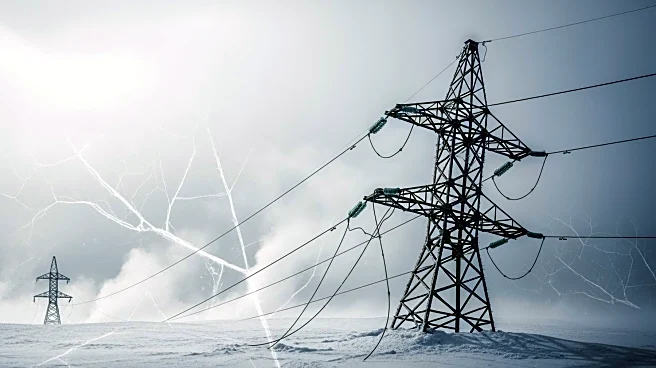What's Happening?
The U.S. Supreme Court, led by Chief Justice John Roberts, has temporarily allowed the Trump administration to freeze billions in foreign aid payments. This decision comes as a response to a lower court
ruling that required the administration to spend $4 billion of the aid by the end of the month. The aid, which includes funds for global health and HIV programs, was approved by Congress but deemed wasteful by President Trump. The administration has been contesting lower court orders that blocked its efforts to curtail foreign aid spending. The Supreme Court's administrative stay is intended to give the justices more time to review the case, although it does not indicate how the court will ultimately resolve the appeal.
Why It's Important?
This development is significant as it highlights the ongoing tension between the executive branch and Congress over control of foreign aid spending. The decision to freeze the aid could impact global health initiatives and HIV programs that rely on U.S. funding. It also underscores the broader debate over the president's authority to unilaterally alter spending approved by Congress. The outcome of this case could set a precedent for future disputes over executive power and congressional authority in budgetary matters. Stakeholders in global health and international aid programs stand to be affected by the potential withholding of funds.
What's Next?
The groups challenging the Trump administration's move have been ordered to respond by Friday. The administration has indicated plans to spend $6.5 billion of the aid by September 30 but seeks to withhold an additional $4 billion. The case's resolution could influence negotiations to prevent a government shutdown, as the administration's attempt to rescind the funds complicates budget discussions. The Supreme Court's final decision will be closely watched for its implications on executive power and congressional authority.








